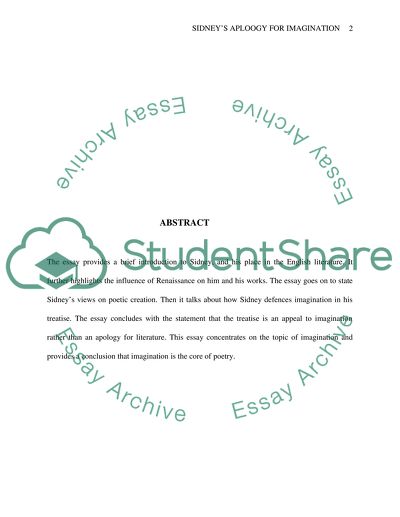Cite this document
(“Sidneys Defence of Poesie Book Report/Review Example | Topics and Well Written Essays - 2250 words”, n.d.)
Retrieved from https://studentshare.org/literature/1520472-sidneys-defence-of-poesie
Retrieved from https://studentshare.org/literature/1520472-sidneys-defence-of-poesie
(Sidneys Defence of Poesie Book Report/Review Example | Topics and Well Written Essays - 2250 Words)
https://studentshare.org/literature/1520472-sidneys-defence-of-poesie.
https://studentshare.org/literature/1520472-sidneys-defence-of-poesie.
“Sidneys Defence of Poesie Book Report/Review Example | Topics and Well Written Essays - 2250 Words”, n.d. https://studentshare.org/literature/1520472-sidneys-defence-of-poesie.


